Driving is a very complex activity that requires a number of cognitive skills that may decline as we age.
According to the National Highway Traffic Safety Administration (NHTSA), dementia affects a number of critical abilities needed for safe driving. These include perception, visual processing, maintaining attention, responding to multiple stimuli at once, making correct decisions, and acting appropriately in difficult traffic situations. Individuals in the early stage of dementia may be able to drive under normal circumstances, but can have difficulty with changing circumstances, and may become lost.
NHTSA has several helpful resources, including:
- NHTSA's Medical Conditions Resources
- NHTSA's Alzheimer's and Driving brochure
- Dementia Fact Sheet for medical professionals (pdf)
The Alzheimer's Association defines dementia as a general term that
describes a set of symptoms that may be caused by a number of different brain
disorders.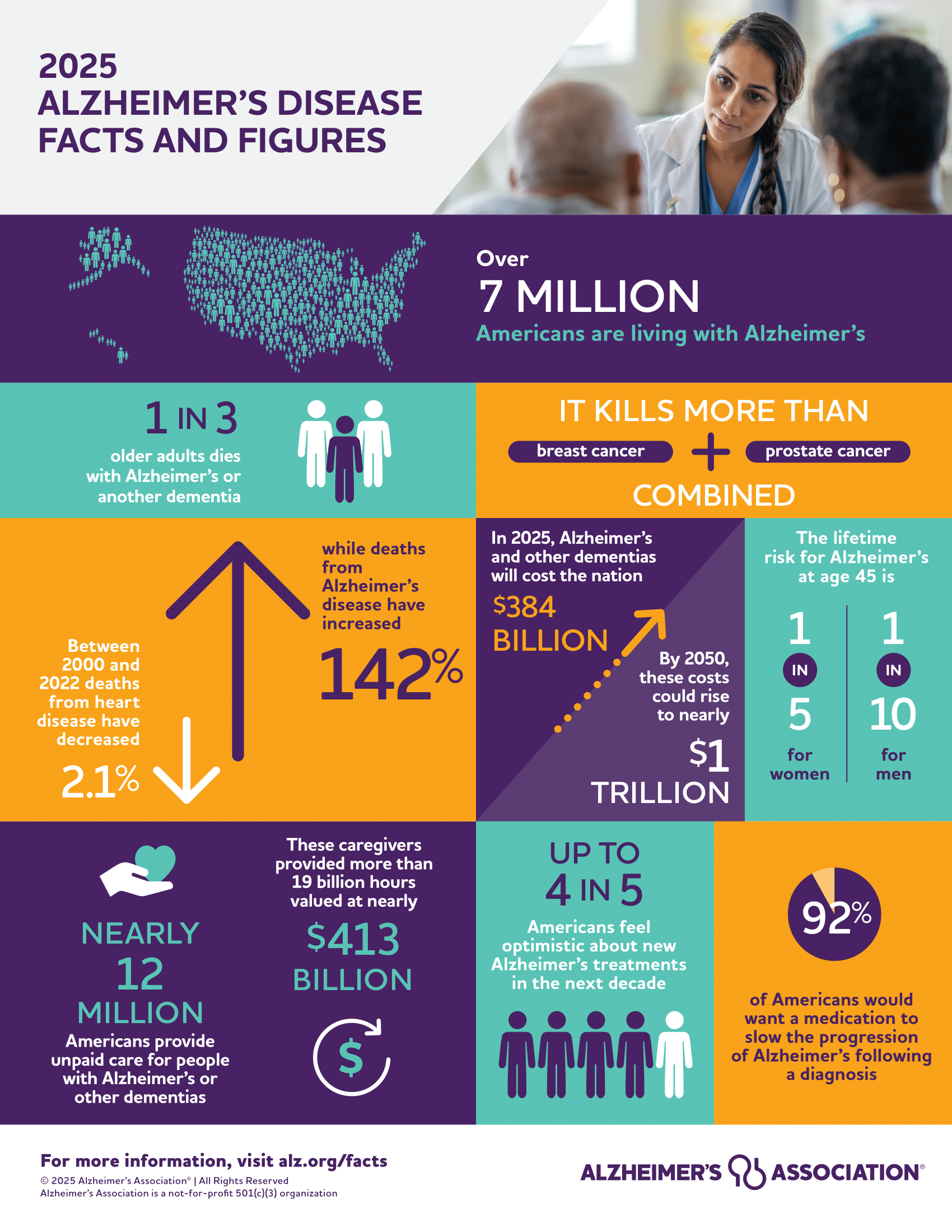
- Dementia vs. Alzheimer's Disease: What Is the Difference? (pdf)
- 10 Early Signs and Symptoms of Alzheimer's and Dementia
- Alzheimer's Association's Dementia & Driving Resource Center website
- Alzheimer's Navigator helps guide caregivers to answers by creating a personalized action plan and linking to information, support and local resources
According to the Alzheimer’s Association, more than 4.3 million Florida
residents are aged 60 and older, and there are about 520,000 probable
Alzheimer’s cases. The Alzheimer’s Disease Initiative (ADI) was legislatively created in 1985 to provide a continuum of services to meet the changing needs of
individuals with Alzheimer’s disease, and similar memory
disorders, and their families. The Florida Department of Elder Affairs coordinates and develops policy to carry out the statutory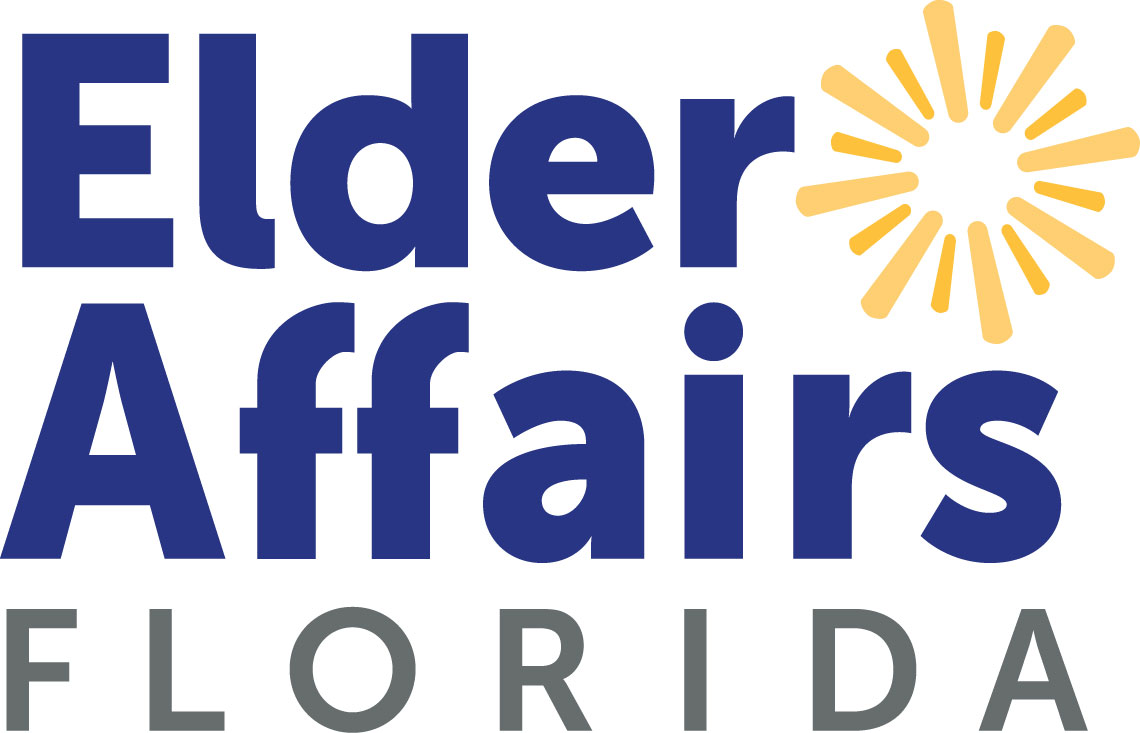 requirements for the ADI.
requirements for the ADI.
Memory Disorder Clinics
Memory disorder clinics funded by the State of Florida provide comprehensive assessments, diagnostic services, and treatment to individuals who exhibit symptoms of Alzheimer's disease and related memory disorders. The clinics also develop training programs and materials and conduct training for caregivers, respite service providers and health care professionals to help care of persons with Alzheimer's disease and related memory disorders. You can visit the Florida Department of Elder Affair's website to view a location map and contact information to help you find a clinic near you.
The Department of Elder Affairs administers programs and services for elders across the state of Florida through 11 Area Agencies on Aging, which operate as Aging and Disability Resource Centers (ADRCs). These ADRCs function as a single, coordinated system for information and access to services for all Floridians seeking long-term care resources. The ADRCs provide information and assistance about state and federal benefits, as well as available local programs and services. Click here to locate your local ADRC.
You have probably heard of Amber Alerts, which notify the public of a missing child through cell phones and highway signs. But fewer of us know about Silver Alerts, which are used to notify the public when a person with Alzheimer's or other related dementias or cognitive impairments, goes missing.
A Silver Alert is activated when an older adult has wandered off either on foot or by car. Like Amber Alerts, Silver Alerts display important details on highway signs such as the make, model, color, and license tag number of the missing person's vehicle. The public is asked to report any sightings to law enforcement.
To qualify for a Silver Alert, the following criterion must be met:
- The missing person is 60 years of age or older, or they are 18-59 and have cognitive impairment and a Silver Alert is the only way to rescue the missing person.
- They have been diagnosed with Alzheimer's, dementia, or other irreversible cognitive impairments caused by illness or trauma.
- The person is believed to be traveling by vehicle or on foot and is considered at risk. After the person is found, the Department of Elder Affairs, local Area Agencies on Aging, and Memory Disorder Clinics are available to provide support and assistance to the individual, their families, and caretakers.

When an individual with a cognitive impairment cannot be found after 5-10 minutes of a thorough search the family member, friend, or caregiver should immediately call 9-1-1 to report them missing. Law enforcement will ask you for important details like the vehicle's make, model, color, license plate number, and a recent photo.
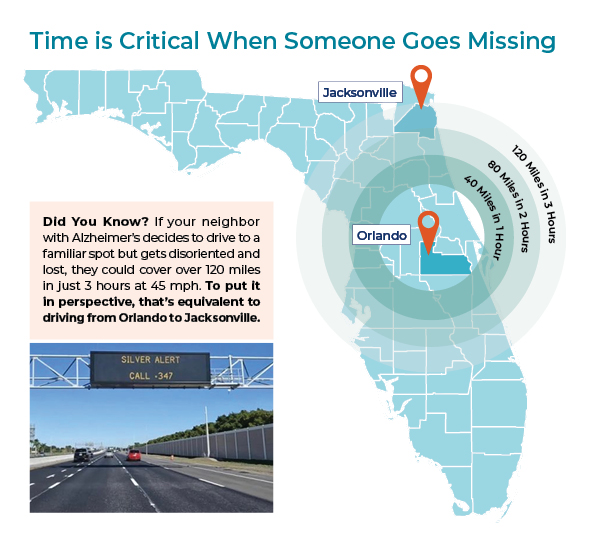 Time is critical when someone with cognitive impairment goes missing. In just one hour, driving at 35 mph they can be in another county or even in a different state. Apart from being lost, they might drive unsafely or forget traffic laws, putting themselves and others at risk.
Time is critical when someone with cognitive impairment goes missing. In just one hour, driving at 35 mph they can be in another county or even in a different state. Apart from being lost, they might drive unsafely or forget traffic laws, putting themselves and others at risk.
Florida's Silver Alert program, is a collaborative effort between local law enforcement, the Florida Department of Law Enforcement (FDLE), the Florida Department of Transportation (FDOT), and the Florida Highway Patrol (FHP) designed to find them quickly by sharing information with the public to help improve the chances of a safe recovery. A Silver Alert helps local law enforcement in the rescue of missing persons who are driving a car by broadcasting pertinent information to the public using dynamic message signs on Florida highways.
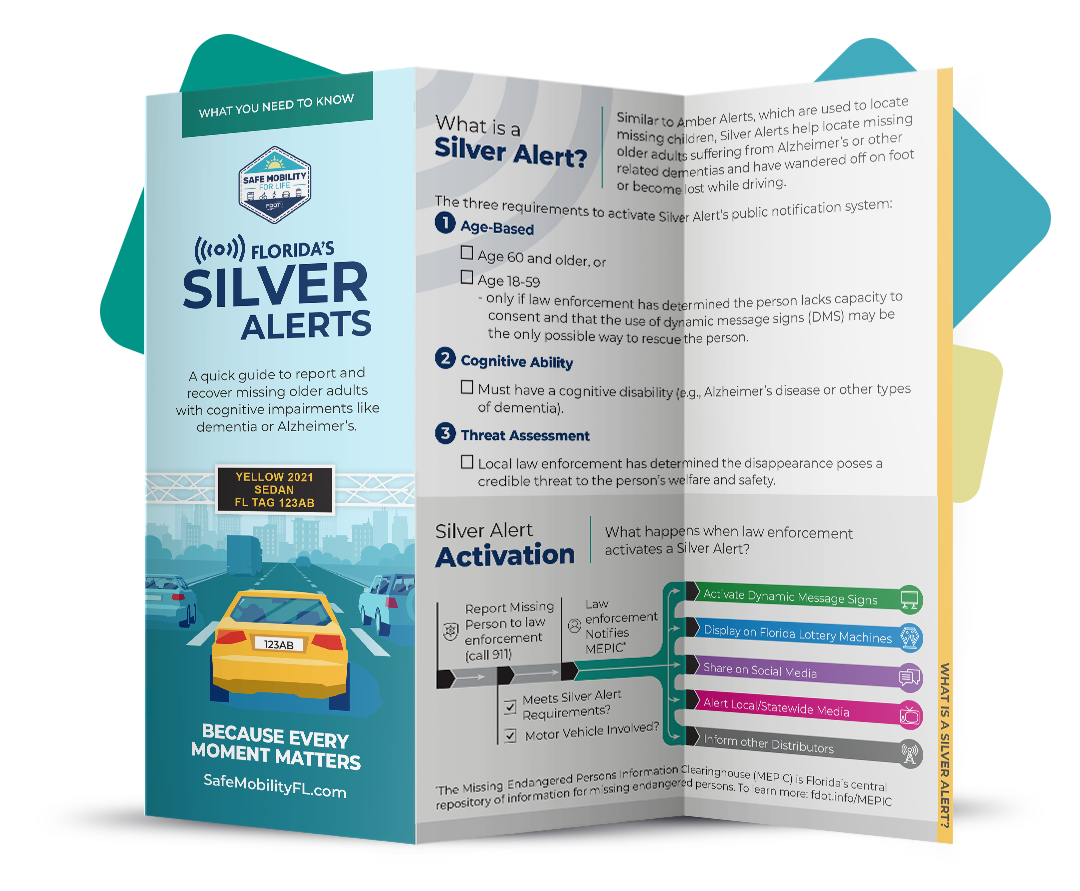
Interested in learning more? Safe Mobility for Life developed a quick guide on how to report and recover missing older adults with cognitive impairments like dementia or Alzheimer's. You can view a digital version by clicking on the image or pre-order a print copy at fdot.info/pre-order and it will be mailed to you when available.
Visit the Florida Department of Law Enforcement's Silver Alert Frequently Asked Questions webpage for more information on this important and valuable resource.

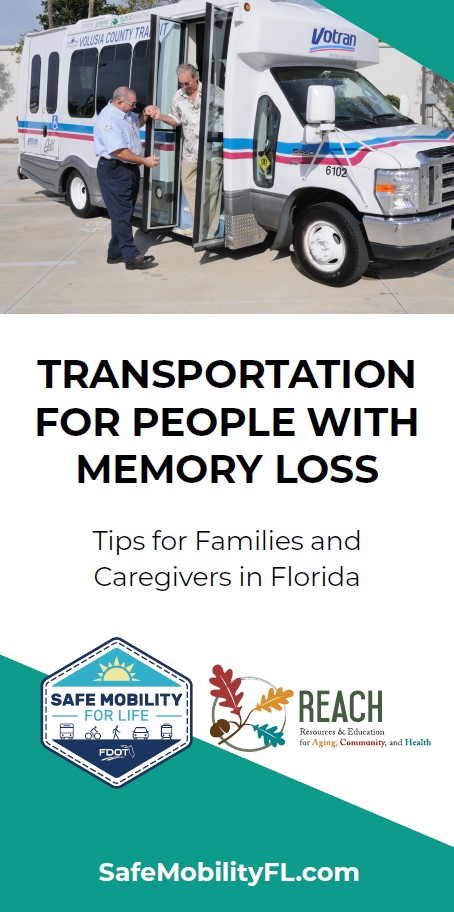
Dementia-friendly transportation goes beyond age-friendliness. It is a transportation service that considers the special needs of passengers with all stages of memory loss. Learn more about how we are helping those serving people with memory loss in our in Florida brochures created in partnership with REACH and the Dementia Care & Cure Initiative.
To view or request free copies of tip Cards on Transportation for People with Memory Loss and Serving People with Dementia (English and Spanish), visit the Resource Center page or email connect.reach@med.fsu.edu.
